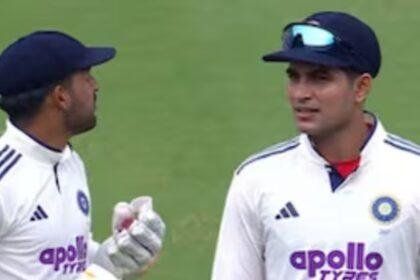Kane Williamson Reflects on His Cricketing Future Amidst Generational Changes
As the cricketing world witnesses a significant generational shift, veteran players are stepping back to make way for emerging talents. This transition is particularly evident in Indian cricket, where icons like Virat Kohli, Rohit Sharma, and Ravichandran Ashwin have recently announced their retirements. New Zealand, too, has seen the departure of stalwarts such as Ross Taylor and Tim Southee. In this evolving landscape, Kane Williamson, a key figure in international cricket for over 15 years, is now contemplating his own future as he approaches the age of 35.
A New Era in Cricket
The past year has marked a pivotal moment in cricket history, as several legendary players have chosen to retire, prompting discussions about the future of the sport. This generational shift is not merely a change in personnel; it represents a broader transformation in the game itself. The likes of Kohli and Williamson, who were part of the celebrated U-19 cohort that included Tim Southee, have been instrumental in shaping modern cricket. Their retirements signal the end of an era characterized by intense rivalries and remarkable performances.
Williamson’s recent appearance at the CEAT Cricket Rating Awards in Mumbai provided a platform for him to address questions about his future. With many of his contemporaries prioritizing family life over cricket, Williamson acknowledged the inevitability of such decisions. “Life is like that – you make decisions based on your priorities, and others also make choices that can impact your career,” he stated, reflecting on the personal and professional crossroads faced by athletes.
Embracing Change
Despite the looming questions about his retirement, Williamson remains optimistic about his role in the sport. He views his longevity as a privilege, allowing him to serve as an elder statesman within the New Zealand team. “These situations will always arise, and being part of those conversations, even if sometimes frustrating, shows you’ve been involved in the game for a significant time, which is a privilege,” he remarked.
Williamson’s perspective on retirement is pragmatic. He emphasized that he would continue to represent New Zealand as long as he can contribute effectively to the team’s success. “For me, it’s always about wanting to be in a position to make a difference and help the team progress as a group,” he explained. This commitment to the team underscores his dedication to cricket, even as he navigates the complexities of life outside the sport.
Balancing Life and Cricket
As Williamson contemplates his future, he acknowledges the challenges of balancing family life with a demanding cricketing career. “Being a dad and husband while continuing to pursue cricket after so many years is a challenging but rewarding balance,” he noted. This sentiment resonates with many athletes who grapple with the dual responsibilities of professional commitments and personal life.
Williamson’s reflections also hint at a potential shift in focus. He suggested that he might prioritize international matches or even concentrate solely on Test cricket in the future. This adaptability is crucial in a sport that is constantly evolving, with new formats and styles emerging. The ability to pivot and adjust one’s role is a hallmark of great athletes, and Williamson embodies this quality.
The Legacy of the ‘Big 4’
Williamson’s career has been intertwined with that of other cricketing giants, particularly those who form the so-called ‘Big 4’ in Test cricket: Kohli, Steve Smith, and Joe Root. This group has dominated the sport for over a decade, setting benchmarks for excellence and competitiveness. As they gradually exit the stage, Williamson’s role as a leader and mentor becomes increasingly significant.
The legacy of the ‘Big 4’ is not just about individual records; it reflects a collective impact on the game. Their rivalries have captivated fans and elevated the sport’s profile globally. Williamson’s contributions, both as a player and a captain, have been instrumental in New Zealand’s rise in international cricket, culminating in their first ICC World Test Championship title in 2021.
Looking Ahead
As Williamson navigates this transitional phase, he remains focused on the present while keeping an eye on the future. His commitment to cricket is unwavering, but he is also realistic about the inevitable changes that come with age and family responsibilities. “When that’s no longer the case, it might be time to move on, and that’s okay,” he stated, indicating a willingness to embrace whatever comes next.
The cricketing community will undoubtedly continue to watch Williamson’s journey with keen interest. His ability to adapt and evolve will be crucial as he seeks to leave a lasting impact on the sport. Whether he chooses to step back or continue playing, his legacy is already firmly established.
Conclusion
Kane Williamson’s reflections on his future in cricket encapsulate the broader changes occurring within the sport. As a veteran player, he stands at a crossroads, contemplating the balance between personal life and professional commitments. His insights offer a glimpse into the challenges faced by athletes as they navigate the complexities of their careers. As the cricketing landscape evolves, Williamson’s journey will serve as a testament to the enduring spirit of the game and the importance of adaptability in the face of change.











